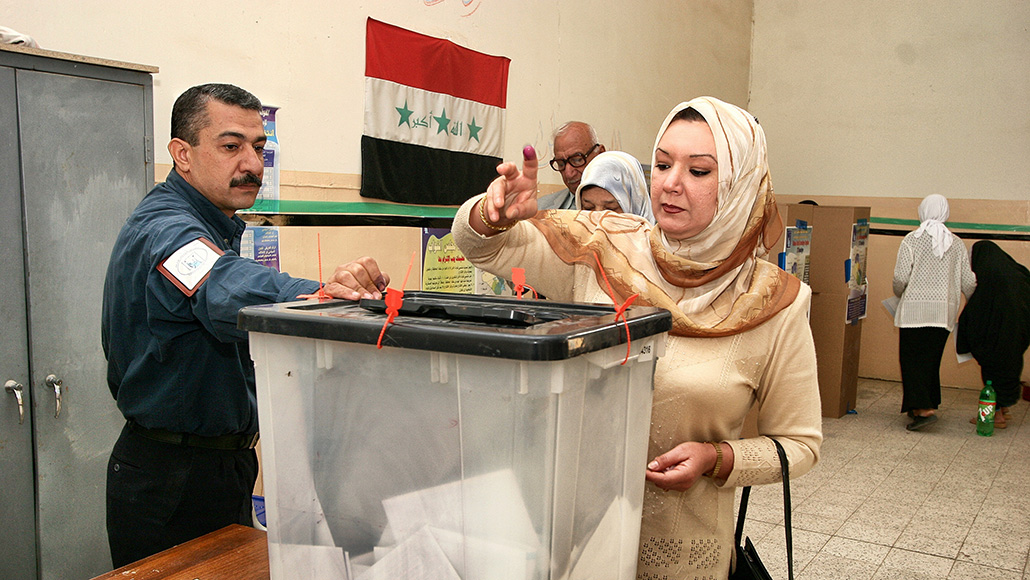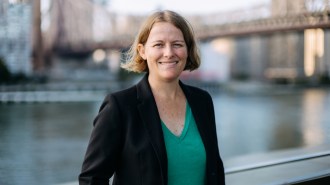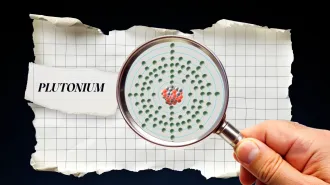Installing democracies may not work without prior cultural shifts
It’s long been unclear if democratic values in a society or democratic institutions come first

The United States has spent years trying to establish democracy in Iraq (voting in 2005 in what was Iraq’s first general election in 35 years is shown). A new study may shed light on why those efforts, and other similar ones, have been so challenging.
serkan senturk/Shutterstock
When the United States invaded Iraq in the early 2000s, President George W. Bush pledged to turn the autocratic nation into a democracy. “Iraqi democracy will succeed, and that success will send forth the news from Damascus to Tehran that freedom can be the future of every nation,” Bush said in a speech in November 2003.
The idea that installing a democracy in a country causes a populace to embrace democratic values, such as respecting the rights and freedoms of all people, has often influenced the foreign policy decisions of the United States and other countries. Yet a recent study of the attitudes of almost 500,000 individuals worldwide suggests that Bush and others have that equation backwards. Such interventions will likely fail unless a country’s citizens have already adopted values that accompany democracy, researchers report December 2 in Nature Human Behaviour.
U.S. politicians often debate whether it’s better to intervene and spread democratic values or let other countries police themselves, says study coauthor Luke Matthews, an anthropologist at the nonprofit RAND Corporation in Boston. “But in both political parties, there’s not enough humility about whether or not we can export democracy.”
In 1950, only 20 countries were democratic, characterized by practices such as a free and open electoral process and checks on executive power. By 2000, that number had reached 60. Understanding the mechanisms through which democracies arise — particularly sorting out which comes first, democratic institutions or democratic values — has been challenging as the surveys social scientists use to measure these values emerged only over the last several decades.
Recent research, however, has provided a solution. Computational social scientist Damian Ruck of the University of Tennessee, Knoxville and others have shown that a person’s cultural values solidify during the first decades of life and then remain stable. So Ruck realized he could use the responses of elderly survey takers to estimate cultural values from previous decades.
Ruck, Matthews and colleagues analyzed how 476,583 adults from 109 nations responded to questions on two surveys of people’s values and beliefs, such as openness to others, respect for individual rights and confidence in institutions, over 25 years. With the dataset starting in 1990, the researchers could infer cultural values dating back to the start of the 20th century. The team then looked at how a population’s collective values shifted alongside a country’s changing “polity score” — a political tool that ranks countries on a scale of autocracy to democracy.
The researchers found that increases in openness to diversity — namely being willing to live near someone who was gay, an immigrant or from another racial or ethnic group — tended to precede a country’s shift toward higher polity scores, or greater democracy, over the next three decades. The researchers did not see a shift in the other direction: Installing a democracy did not lead to greater openness.
The researchers also identified another signal that could hint at a country’s political future. A lack of confidence in government institutions strongly predicted a change in government type within 30 years, with democracies as likely to transition to autocracies as the reverse.
Together, these findings may explain much of the political tumult over the last century. The idea that shifting values must precede conversion to democracy helps explain, for instance, the United States’ difficulties in installing lasting democracies in autocratic places like Iraq and Afghanistan, the researchers say. And continued lack of confidence in institutions explains why countries in South America, such as Brazil, Argentina and Venezuela, have been vacillating from one end of the political spectrum to the other, the team argues.
The observed patterns could also explain outliers, such as Japan’s shift to democracy following World War II, Matthews says. In that extreme case, the United States spent seven years helping to rebuild Japan after the war and instilling democratic values. At the same time, the Japanese people had lost their once absolute faith in their leaders. That combination of factors set the stage for an otherwise unlikely political shift, Matthews says.
Sociologist Robert Woodberry of Baylor University in Waco, Texas, agrees with the overall conclusion, but says the authors missed a step. “What’s causing those shifting values?” he asks.
That’s a question for later research, Matthews agrees. Nonetheless, he says, quantifying a population’s values alongside people’s faith in government institutions could help policy makers identify countries where installing democracy is simply not feasible.
The study’s findings also have a more sweeping implication, Ruck says. Research elsewhere has shown that institutional confidence, which was high during the 20th century, has been declining worldwide. People got used to autocracies switching to democracies and assumed that was the norm, Ruck says. But this research shows that the current loss of faith in institutions threatens even stable democracies in the United States and Europe.
Political conflict expert Monty Marshall agrees. This study provides further proof that world leaders should be concerned about the current political situation, says Marshall, of the Center for Systemic Peace in Vienna, Va., a nonprofit organization that supports research investigating political violence within a global framework. “Democracy is fragile, and if we don’t work to sustain it, it will fall apart.”







